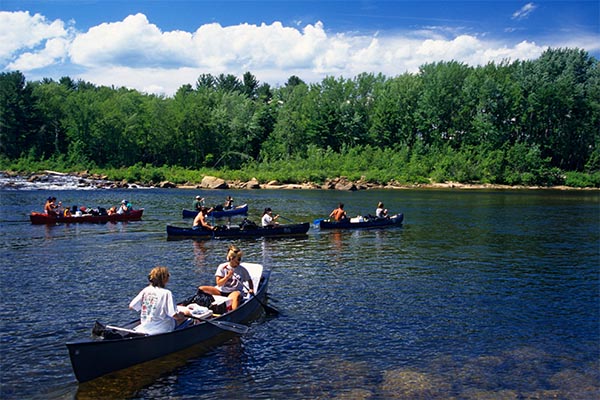
There is little actual data that exists on the water quality of the Saco, Ossipee, and Little Ossipee Rivers. Regular but infrequent testing by the State of Maine indicated that water quality has improved. The Maine Department of Environmental Protection (Maine DEP) tests the water in the Saco River at six separate locations once every five years. Their testing regime is physical — unlike the Saco River Corridor Commission testing, which is chemical in nature.
The Maine DEP looks for the presence of aquatic insects that can be used as “indicator species” for water quality. Other isolated and periodic testing of discrete areas along the rivers over the years was carried out primarily by school groups without a commitment to long-term data collection. Because long-term background information is not available, it is difficult to determine the current water quality in the river. It is also difficult to determine if current land use management strategies and regulations remain effective.
The hope for this program is to collect and store data for use by towns in the Corridor and for the State of Maine and to help us refine and/or reform our regulations to meet the current needs of the rivers and citizens in the Corridor. Having the data allows us to create a picture of the river systems. Over time, this picture will emerge to show trends in water quality. Identification of problem areas along the river and a more informed decision-making process will be the direct outcome of this program.
Not only do we monitor for the overall health of our rivers and the communities that enjoy them; we monitor to inspire others to become involved and be informed as to what we can do as a community to sustain our natural water sources.
Interested in collaborating with the SRCC for an exciting learning experience at your educational institution?
Students will get out in nature, learn how to use state-of-the-art equipment to test for important water quality parameters, and discover what those values mean in terms of maintaining healthy rivers!
Reach out to Executive Director, Cheri Dunning, for more information on how you can get your students involved in this unique, environmental education opportunity.
If you’re interested in becoming a volunteer, please contact the office for more information.
The Saco River Corridor Commission is committed to protecting public health and safety and the quality of life for the state of Maine. The commission regulates land and water uses, protects and conserves the region’s unique and exceptional natural resources, and prevents the detrimental impacts of incompatible development. The commission was established in 1973.